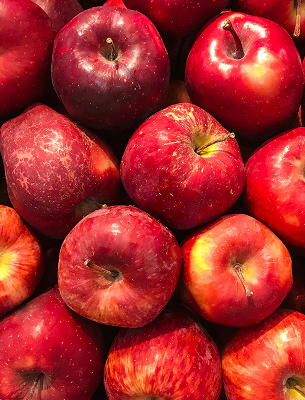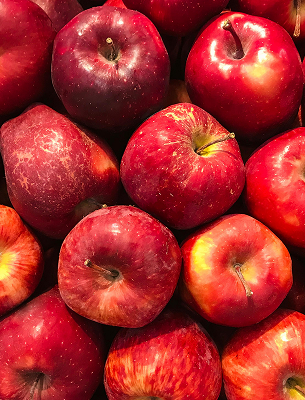 Quercetin, 98% Reduced
Quercetin, 98% Reduced
TMW sources the purest Quercetin, at 98% reduced to 100% in purity.
Quercetin is a potent antioxidant flavonoid and more specifically a flavonol, found mostly in onions, apples, grapes, berries, cherries, broccoli, and citrus fruits. It is a versatile antioxidant known to possess protective abilities against tissue injury induced by various drug toxicities. Its antioxidant and anti-inflammatory properties are its most well researched and documented benefits.
Studies
Studies have shown that the ingestion of flavonoids reduces the risk of cardiovascular diseases, metabolic disorders, and certain types of cancer. These effects are due to the physiological activity of flavonoids in the reduction of oxidative stress, inhibiting low-density lipoproteins oxidation and platelet aggregation, and acting as vasodilators in blood vessels. Quercetin also exerts anti-allergy effects by inhibiting the release of histamine from mast cells thus acting as a natural antihistamine. Quercetin's ability to prevent allergic effects has tremendous implications for the treatment and prevention of asthma and bronchitis.
Benefits
Antioxidant: antioxidants are used to reduce what are known as “free radicals'' in your body. Free radicals are produced during the course of normal metabolic processes, but the problems arise when the buildup of free radicals overwhelms the amount of antioxidants in the body. These free radicals can start a chain reaction of oxidation reactions on the cellular level which can disrupt the cell membrane, damage proteins and lipids, and cause mutations in DNA. Quercetin’s antioxidant and chelating properties help to stop and prevent these free radicals from causing too much cellular damage.
Anti Inflammatory properties: Quercetin is well known to modulate inflammation. It does so by inhibiting the inflammatory enzymes known as cyclooxygenase (COX) and lipoxygenase. This can help reduce chronic and acute inflammation. In a study on rats with arthritis, doses of quercetin were clearly seen to reduce the symptoms compared to the untreated control group.
Cellular health: Quercetin has been found to modulate various cellular processes that are crucial for healthy aging. It can activate certain proteins and pathways involved in DNA repair, cellular stress response, and longevity. By supporting cellular health and resilience, quercetin may have positive effects on lifespan.
Anti-carcinogenic properties: Quercetin has potent anticarcinogenic properties and is known to contribute as an apoptosis inductor whereby it decreases the growth of tumor in the brain, liver, colon, and other tissues and inhibits the spread of malignant cells. (In the study done on anti-carcinogenic properties, the patients were given a combination of quercetin and curcumin). In cancer cells, quercetin was also found to inhibit the growth and activity of telomerase. Telomerase is responsible for maintaining telomeres. In cancer cells, this if favorable because it hinders their proliferation that would otherwise be essentially indefinite.
Neurodegenerative Protection: Quercetin along with ascorbic acid reduces the incidence of oxidative damage to human lymphocytes and neurovascular structures in the skin and inhibits damage to neurons. It is known to protect brain cells against oxidative stress, which damages tissue leading to Alzheimer’s disease and other neurological conditions.
Cardiovascular health: In a study done by Greek cardiologists on thirty men who already had coronary heart disease (CHD) on the consumption of red grape polyphenol extract rich in quercetin caused an increase in flow-mediated dilation of major arteries, a potent indicator of improved endothelial health. Quercetin inhibits platelet aggregation and improves the health of the endothelium. In addition to that, it also protects against CHD (Congenital heart defects) and reduces the risk of mortality caused by low-density lipoprotein (bad cholesterol).
Quercetin as an Antidepressant *(Emerging research)*: From “Antidepressant Potential of Quercetin…” : At present, few clinical trials have applied quercetin as a single drug to explore its pharmacological effects. Additionally, no relevant clinical trials have evaluated its antidepressant effects. Thus, we retrieved clinical studies using Chinese herbal formulas as interventions in which quercetin was the main component (Sun et al., 2018; Li et al., 2019; Wei et al., 2021). For example, the effects of Chaihu Shugansan in improving depression when used as monotherapy were significantly better than antidepressants such as fluoxetine, paroxetine, and duloxetine, and were comparable to these antidepressants in enhancing recovery rate (Wang et al., 2012). Danzhi Xiaoyaosan has similar clinical comprehensive effects to antidepressants (Wang et al., 2021b). Therefore, quercetin can work synergistically with other components to improve depression. Meanwhile, clinical trials evaluating the antidepressant effects of quercetin as a monotherapy are still required.
Quercetin Effects on 12 Hallmarks of Aging:
Telomere Attrition:
Quercetin indirectly impacts telomeres through its antioxidant and anti-inflammatory properties mitigate telomere attrition. It also has been shown to inhibit inhibiting the maintenance of telomeres in cancer cells.
Epigenetic Alterations:
Quercetin can benefit epigenetics by influencing DNA methylation and therefore positively affecting gene expression.
Cellular Senescence:
Quercetin indirectly influences cellular senescence through its anti-inflammatory and antioxidant properties by mitigating chronic inflammation and oxidative stress, which are known contributors to senescence-related processes.
Inflammation:
Quercetin is recognized for its ability to modulate inflammation by inhibiting cyclooxygenase (COX) and lipoxygenase enzymes, leading to a reduction in chronic and acute inflammation.
Dysregulated Autophagy:
Quercetin induces autophagy in cancer cells and neurons by increasing autophagosome formation through its impact on key signaling pathways, notably the activation of the AMP-activated protein kinase (AMPK) pathway, a known stimulator of autophagy.
Genomic Instability:
Quercetin is very beneficial for genomic stability because it scavenges ROS to reduce oxidative stress and damage to DNA.
Mitochondrial Dysfunction:
Quercetin has positive effects on mitochondrial health because of its promotion of biogenesis, antioxidant properties, and enhancement of ATP production.
Stem Cell Exhaustion:
Quercetin has been observed to promote the proliferation and self-renewal of specific stem cell types, such as neural stem cells and mesenchymal stem cells, and it can also influence the differentiation of mesenchymal stem cells into osteoblasts (bone-forming cells) in laboratory studies.
Loss of Proteostasis:
Quercetin helps maintain proteostasis by chaperoning proteins to fold properly as well as aiding in the degradation of damaged or misfolded proteins.
Deregulated Nutrient Sensing:
Quercetin affects nutrient sensing by modulating pathways like AMPK and mTOR, influencing cellular energy balance and metabolism.
Intercellular Communication:
Quercetin is able to modulate cellular communication and interactions between cells by affecting signaling pathways involved in inflammation, oxidative stress, and cell survival.
Microbiome Dysbiosis:
Quercetin impacts dysbiosis by increasing the abundance of beneficial bacteria and reducing inflammation to protect those bacteria.
Sources:
NIH: “Overviews of Biological Importance of Quercetin: A Bioactive Flavonoid”
NIH: “Free radicals, antioxidants and functional foods: Impact on human health”
https://www.ncbi.nlm.nih.gov/pmc/articles/PMC3249911/
Therapeutic and preventive properties of quercetin in experimental arthritis correlate with decreased macrophage inflammatory mediators:
https://www.sciencedirect.com/science/article/abs/pii/S0006295206004965
Antidepressant Potential of Quercetin and its Glycoside Derivatives: A Comprehensive Review and Update:
